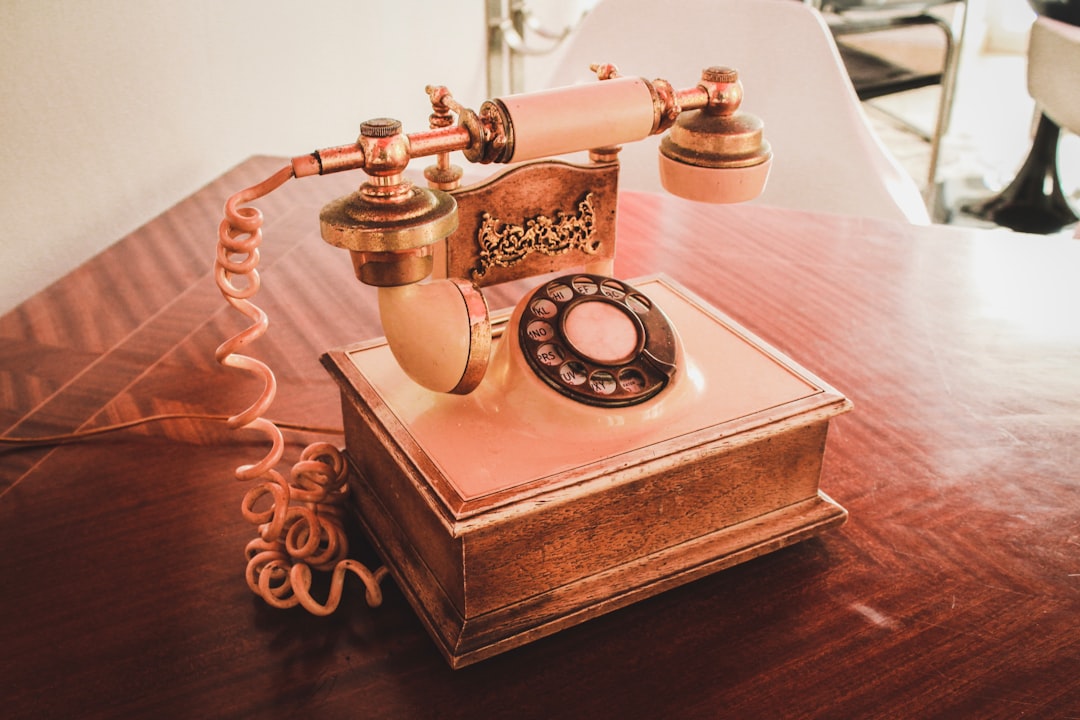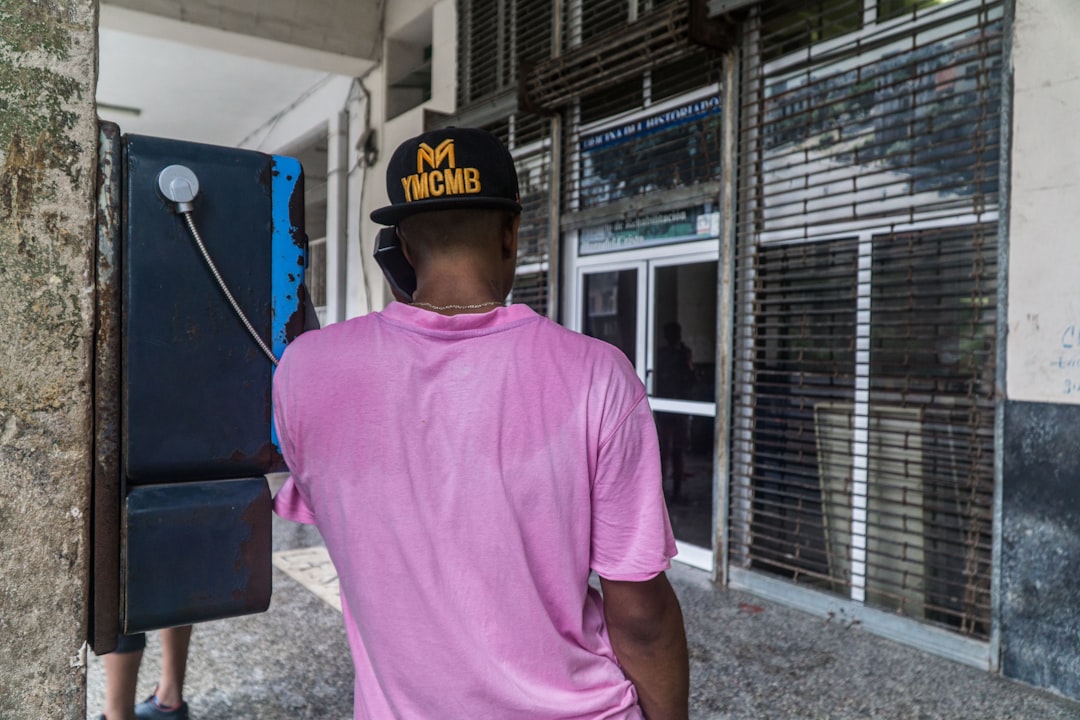South Dakota has a stringent Do Not Call law to protect residents from unwanted robocalls. Consumers can register their numbers and report violations like misleading calls or lack of opt-out options. Consulting with a Do Not Call lawyer in South Carolina is advised, as they can guide you through your rights and pursue legal action against offending businesses. Documenting call details and filing complaints with the Attorney General's office are initial steps. A reputable Do Not Call law firm should handle negotiations or court cases, securing justice and damages. Engaging legal experts ensures a structured approach to robocall complaints and prevents future calls by registering on Do Not Call lists and using blocking apps.
In South Dakota, robocalls have become a common nuisance, but they don’t have to be. If you’re receiving unsolicited automated calls, you may have legal recourse under the Telephone Consumer Protection Act (TCPA). Understanding your rights and when to pursue legal action is crucial. This guide explores everything from identifying robocall violations in South Dakota, choosing the right Do Not Call lawyer SC, navigating the legal process, potential damages, and preventing future unwanted calls. If you’re tired of these persistent calls, it’s time to delve into your options with a dedicated Do Not Call attorney SC.
- Understanding Robocall Violations in South Dakota
- When Do You Have a Case for Legal Action?
- Choosing the Right Do Not Call Lawyer in SC
- Navigating the Legal Process for Robocall Complaints
- Potential Damages and Compensation
- Preventive Measures: Stopping Future Robocalls
Understanding Robocall Violations in South Dakota
In South Dakota, robocall violations are taken seriously due to laws put in place to protect residents from unwanted and deceptive automated calls. The state’s Do Not Call law, similar to federal regulations, allows consumers to register their phone numbers on a “Do Not Call” list, which prohibits businesses from making automated or prerecorded telemarketing calls to those numbers.
Robocall violations can include companies calling registered numbers, failing to identify themselves or provide an opt-out option, or using deceptive language that misleads recipients about the purpose of the call. If you’ve experienced such violations and are seeking redress, consulting with a Do Not Call lawyer in South Dakota (SC) is advisable. These legal experts can guide you through your rights and options, including pursuing legal action against offending businesses to stop unwanted calls and secure potential damages.
When Do You Have a Case for Legal Action?
If you’ve been receiving unwanted robocalls in South Carolina, you may have a case for legal action. According to the Telephone Consumer Protection Act (TCPA), businesses are prohibited from making automated or prerecorded telephone calls to consumers without their prior explicit consent. If you’ve registered on the National Do Not Call Registry and still receive such calls, or if the calls cause you substantial annoyance or frustration, you may have grounds to take legal action against the violator as a Do Not Call lawyer SC or Do Not Call attorney SC.
Additionally, if the robocalls involve deceptive or false information, misrepresentations about products or services, or violate any other consumer protection laws in South Carolina, you can file a complaint with the South Dakota Attorney General’s office and potentially seek legal recourse through a Do Not Call law firm SC or Do Not Call lawyers SC. It’s important to document the calls, including dates, times, and any specific details about the messages received, as these records can be crucial in building your case.
Choosing the Right Do Not Call Lawyer in SC
When pursuing legal action for robocall violations in South Carolina, selecting the right Do Not Call Lawyer is a crucial step. Look for an attorney or law firm that specializes in telecommunications and consumer protection laws. Experience in handling Do Not Call cases is essential as these laws can be complex and vary by state. Choose a legal team with a proven track record of success in securing monetary damages for clients and stopping unwanted calls.
Consider the reputation, client reviews, and communication style when choosing your Do Not Call attorney. A reputable law firm will offer transparent pricing, keeping you informed throughout the process. They should also be equipped to handle both settlement negotiations with call centers or take your case to court if necessary. Engaging a qualified Do Not Call lawyer SC can significantly enhance your chances of achieving justice and stopping invasive robocalls.
Navigating the Legal Process for Robocall Complaints
Navigating the legal process for robocall complaints in South Dakota can seem daunting, but with the right guidance, it’s a step-by-step journey towards justice. The first course of action is to gather all relevant information about the unwanted calls, including timestamps, call content, and any recordings or notes made at the time. This evidence is crucial when filing a complaint with the South Dakota Public Utilities Commission (SDPUC), which regulates telemarketing activities in the state.
Next, consider consulting with a qualified Do Not Call lawyer or attorney from a reputable law firm in SC. These legal professionals are equipped to guide you through the process, ensuring your rights are protected. They can file a formal complaint on your behalf and represent you if the case progresses to arbitration or litigation. Their expertise will be invaluable in securing remedies such as monetary damages or injunctive relief against the violating parties.
Potential Damages and Compensation
When considering legal action against robocall violators in South Dakota, understanding potential damages and compensation is a key step. If you’ve been affected by unwanted automated calls promoting goods or services, you may be entitled to significant financial redress. The Do Not Call lawyer SC, or a specialized Do Not Call attorney SC from a reputable Do Not Call law firm SC, can help navigate this process.
Compensation can include not only the frustration and inconvenience caused by these calls but also statutory damages that can amount to hundreds of dollars per violation. In some cases, courts may award treble damages, meaning three times the actual harm suffered, to serve as a stronger deterrent against future violations. Engaging a lawyer for Do Not Call SC can ensure you receive fair compensation for your experiences and help put an end to robocalls once and for all.
Preventive Measures: Stopping Future Robocalls
When it comes to preventing future robocalls, taking proactive steps is key. If you’re experiencing frequent unwanted calls from automated systems or telemarketers in South Carolina, consider consulting a Do Not Call lawyer SC or Do Not Call attorney SC. They can guide you through establishing and registering your number on state and national Do Not Call lists. This simple measure can significantly reduce the volume of automated calls you receive.
Additionally, blocking numbers and using call-blocking apps are effective preventive measures. Educating yourself about robocall laws and regulations in SC, such as those enforced by the South Dakota Public Utilities Commission, is also beneficial. By combining these strategies, you can create a robust defense against intrusive robocalls, ensuring your peace of mind and protecting your personal time from unwanted intrusions.






